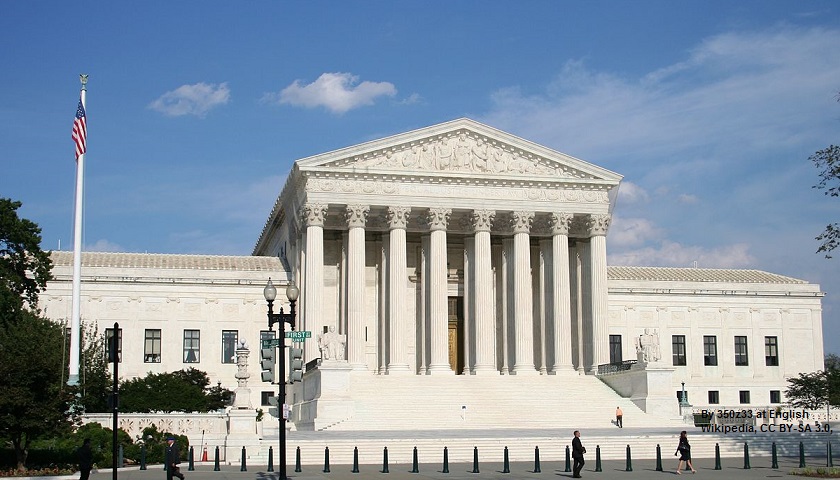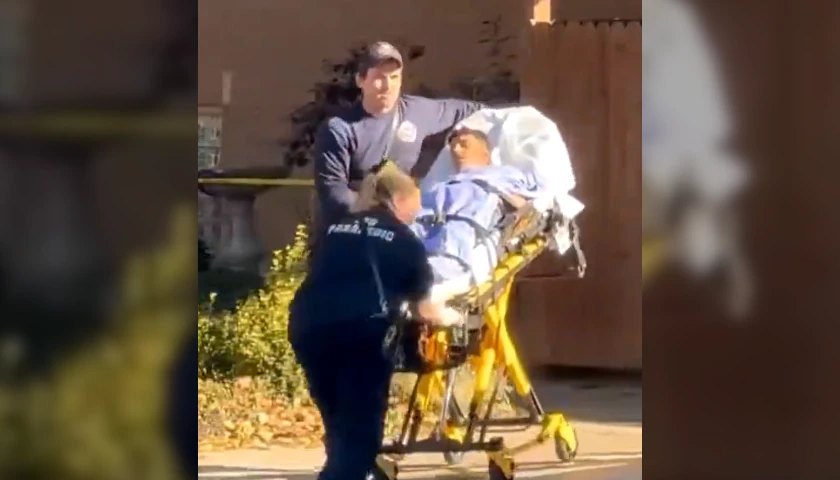Long before there was debate over in-state college tuition for illegal immigrants in Tennessee and around the country, there was debate over illegal immigrant students in grades K-12.
The matter was settled in 1982, when the U.S. Supreme Court ruled 5-4 in Plyler v. Doe that public schools must grant illegal immigrant children a free K-12 education as they would for any other student. Doing otherwise would violate the equal protection clause of the 14th Amendment, the court said.
The ruling helped set the stage for future wrangling over providing young illegal immigrants with benefits for continuing their education and finding work after graduating from high school. In Tennessee, a bill that would provide in-state tuition for illegal immigrants is moving through the state legislature. The proposed legislation is sponsored by two Republicans, Sen. Todd Gardenhire (R-Chattanooga) and Rep. Mark White (R-Memphis). A similar bill was passed by the Senate two years ago but failed in the House by one vote. Currently, at least 18 states offer in-state tuition for illegal immigrants, according to the National Conference of State Legislatures.
Proponents say it’s not fair to create hurdles for college-bound illegal immigrants after they were welcomed and encouraged in their K-12 schools. Opponents, meanwhile, are frustrated with what they see as unjustifiably granting a growing number of benefits to people who technically have no right to be in the country.
The ruling in Plyler has served as “a kind of conveyor belt that powers the argument for amnesty,” said Mark Krikorian, executive director of the Center for Immigration Studies in Washington, D.C., in an interview with The Tennessee Star. Krikorian is opposed to in-state tuition for illegal immigrants but regards Plyer v. Doe as a thornier issue.
Plyler v. Doe resulted from Texas enacting a state law in 1975 allowing school districts to charge tuition to parents of illegal immigrant children. In Tyler, Texas, school officials under the direction of superintendent James Plyler began charging $1,000 yearly tuition for every illegal immigrant student. A Catholic lay worker who heard that children couldn’t go to school alerted a local lawyer, who began working with the Mexican American Legal Defense and Educational Fund (MALDEF). They filed a class-action lawsuit.
A U.S. district court judge issued a preliminary injunction preventing the school system from denying a free public education to illegal immigrants and ordering the state to release funds to cover the costs. The ruling was affirmed by the 5th Circuit Court of Appeals before the case reached the Supreme Court.
Justice William Brennan, who delivered the majority opinion for the high court, wrote that illegal immigrant children “can affect neither their parents’ conduct nor their own status” and “legislation directing the onus of a parent’s misconduct against his children does not comport with fundamental conceptions of justice.” He also said there was no evidence to suggest that immigrants were coming to the U.S. for a free education or that excluding illegal immigrant children would improve the quality of education in Texas.
Those who dissented from the majority opinion said it wasn’t a decision for the Supreme Court to make, but rather a decision that should be left to lawmakers. In his dissenting opinion, Chief Justice Warren Burger wrote:
The Court makes no attempt to disguise that it is acting to make up for Congress’s lack of ‘effective leadership’ in dealing with the serious national problems caused by the influx of uncountable millions of illegal aliens across our borders. The failure of enforcement of the immigration laws over more than a decade and the inherent difficulty and expense of sealing our vast borders have combined to create a grave socioeconomic dilemma. It is a dilemma that has not yet even been fully assessed, let alone addressed. However, it is not the function of the Judiciary to provide ‘effective leadership’ simply because the political branches of government fail to do so.
Radio host and author Mark Levin called the Plyler v. Doe decision “perhaps the most egregious of the Court’s immigration rulings” in his book Men in Black: How the Supreme Court is Destroying America.
“In Plyler, the Court decided that any conglomeration of people, regardless of the reason for their classification under law, had to be treated identically with every other class of people,” Levin wrote.
Krikorian of the Center for Immigration Studies also believes that the Plyler v. Doe ruling is an example of judicial overreach. However, he doesn’t think people who want to get our immigration system under control have much to gain by trying to get the ruling overturned.
In the first place, it’s likely that many legislative bodies across the country wouldn’t decide any differently than the high court if given the chance, Krikorian said, adding that it’s a difficult issue because it involves children.
“We’re talking about kids,” he said. “It’s just hard to deal with.”
Those with misgivings about denying illegal immigrant children a free K-12 public school education eventually included James Plyler himself. Years later, the school superintendent at the center of the case changed his mind and said illegal immigrants should be given a free education.
Krikorian thinks attention is better focused on preventing the arrival of illegal immigrants in the first place. But the number one issue is not building a wall, he said.
“I’m not against that in theory and there are places where that would be helpful,” he said. “But what we really need is mandatory E-Verify coupled with a change in law to make it easier to go after the employers.” E-Verify is a system that helps employers know if a potential employee is eligible to work in the U.S.
Krikorian also says there needs to be better tracking of visa holders, many of whom have not faced consequences for overstaying them. In addition, he advocates for improved routine enforcement of immigration laws, not just for illegal immigrants who have committed other crimes besides being in the U.S. without permission. He’s also opposed to in-state college tuition for illegal immigrants because he says taxpayers shouldn’t be on the hook for special benefits beyond a free K-12 education.
Over the years, Plyler v. Doe has been “resilient” in the face of challenges, according to a 2010 article published by the Migration Policy Institute that was sympathetic toward the ruling.
“The original Plyler case has proven quite resilient, fending off litigation and federal and state legislative efforts to overturn it, and nurturing efforts to extend its reach to college students,” the article said.
Plyler faced a significant direct challenge in 1994 and another in 1996, according to the article. In 1994, California voters approved Proposition 187 that would have denied most all state-funded benefits to illegal immigrants, including enacting an absolute ban on public education. That means it would have gone further than the Texas statute in Plyler because it would not have allowed for districts to charge tuition. Prop. 187, which was struck down by a federal judge, also would have required school officials to report illegal immigrant parents and guardians.
In 1996, U.S. Representative Elton Gallegly (R-CA) proposed legislation that would have allowed states to charge tuition for public school enrollment. The proposal was withdrawn for lack of support, including from the Republican senators from Texas, Phil Gramm and Kay Bailey Hutchison, who publicly stated their opposition to repealing Plyler.
The Migration Policy Institute article said that in Texas, growing acceptance of illegal immigrant students can be attributed to “the rising electoral representation of Mexican American legislators and others who see no reason to oppose this development or to defy the Court’s ruling.” The article also noted that many officials believe it makes fiscal sense to support Plyler because school system funding formulas count students in attendance.
However, the election of President Trump shows how there are still many Americans who object to the extension of benefits to illegal immigrants and would like to see the question of access to public schools become less of an issue through enforcement of immigration laws.






[…] are required by the 1982 Supreme Court ruling in Plyler v. Doe to offer a free K-12 public education to all students regardless of immigration status, which has […]